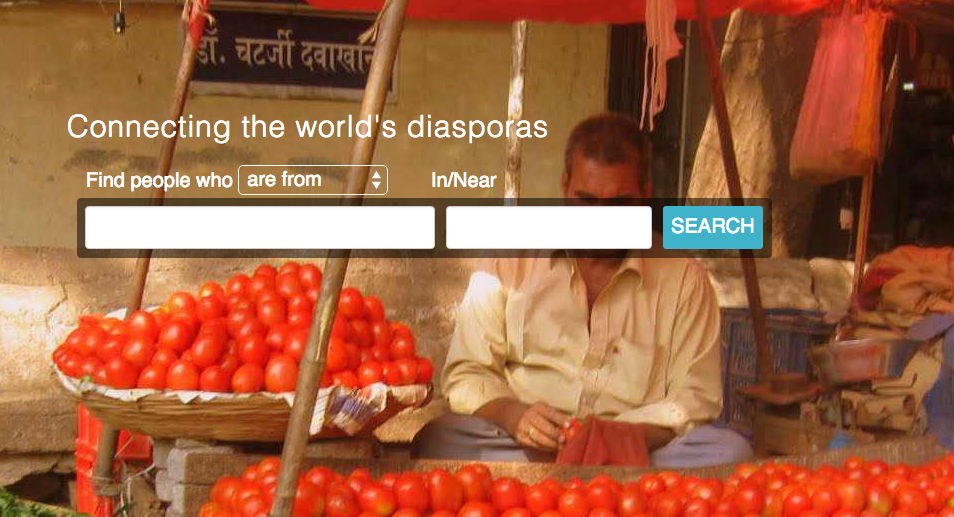 OMAHA—America has been known as the melting pot of creeds and cultures since the early 1900s. After more than a century, the nickname remains relevant today.
OMAHA—America has been known as the melting pot of creeds and cultures since the early 1900s. After more than a century, the nickname remains relevant today.
The number of international students at U.S. universities has skyrocketed the past 10 years. A record 819,644 international students attended undergrad and post-grad schools in 2013, according to a U.S. News & World Report. Statistics also show that foreign-born professionals comprise more than 16 percent of the U.S. labor force.
Along with clothes, memorabilia and family photos, these students and professionals bring their cultural mores and traditions with them.
Naturally, many look for others from their native country to help build cultural familiarity in a new city.
That’s why lifelong friends Ken Chester and Andrew Krussell, co-founders of CultureMesh, hope to build a platform that unites like-minded internationals living in America—Krussell’s working on the project alongside his work at First National Bank of Omaha.
“When I was a student at Grand Rapids Community College, I was hired as a campus academic tutor, and my first student was from Ethiopia who needed help with English,” Chester said. “I thought, ‘This person is totally different than me; they won’t want to talk.’
“But besides having a different culture of origin, we actually had a lot in common.”
When Chester transferred to Michigan State, he requested to live in the dorm for international students. He and Krussell, who attended Central Michigan State, sought opportunities to lend help or advice to students trying to navigate the system.
Chester founded Refugee/Immigrant Young-Adult Neighbor (RYAN), an organization to help immigrant and refugee families assimilate in their new country, and in 2010, they launched an ESL driving school that taught students how to get a license and drive using their native tongue.
Still, the friends searched for a way to give students and refugees a piece of home, and the answer came when Chester took a group of Bhutanese refugees on a trip from Lansing, Mich., to Washington D.C.
“We stayed in five different cities on the way there—Cleveland, Pittsburgh, others—with [Bhutanese] friends and family who had resettled across the U.S.,” Chester said. “They were perfect pockets of their unique culture, and after that experience, I wanted to create something that could be a central resource for diaspora populations.”
Having both experienced the stress and adventure of being abroad—Krussell in South Korea and the Philippines and Chester in Mexico—they understood the value of finding something familiar in a foreign context. They created CultureMesh to create that familiarity for foreigners living in the U.S.
“CultureMesh is a niche networking platform for people who are away from their hometown, state or country,” said Krussell (right).
Users enter their current city and city or country of origin, and CultureMesh connects them to existing networks that match them with others from their home culture living in their city. If, for example, someone from Mumbai lives in Kansas City, or someone who speaks Mandarin lives in El Paso, they could find each other to create an on- and offline community.
CultureMesh user Dingding Lin is from Beijing, China, and has been living in New York City for the past three years. She said though there are other social networks and organizations that connect internationals, she likes the flexibility of CultureMesh.
“You can be as broad or specific as you want in the networks, like ‘Beijingers in New York’ … or maybe ‘speakers of a certain Chinese dialect in New York,’” said Lin. “It makes it efficient to find people in an unfamiliar location.”
It also works well for Americans who move from state to state, like Nebraskans trying to find other Nebraskans living in New York City.
Chester said that though creating social media networks of like-minded people isn’t new, CultureMesh offers a more efficient way to find specific people groups.
“Facebook groups are so fragmented that you’d have to start over if you moved to a new city,” he said. “With CultureMesh, if you’re arriving in a new town and want to connect to a community or business, you can go to a central resource rather than search for groups online that may or may not still exist.”
It’s a resource that, according to Krussell, can go beyond fulfilling the social needs of a community far from home.
 “We want to grow into a one-stop where individuals can join local associations, form a sports team, even find government resources to renew their immigrant visa,” he said.
“We want to grow into a one-stop where individuals can join local associations, form a sports team, even find government resources to renew their immigrant visa,” he said.
With no sign-up fees, Chester said future users coordinate crowdfunding campaigns through CultureMesh to raise money for, say, building their own community center or sending money back home to their families. They also are considering having a job board for companies looking to fill a position with someone who speaks a certain language.
With Chester (left) now living in Silicon Valley and Krussell working in Omaha, the two are busy navigating the early stages of a startup. CultureMesh is still in its beta stage, but networks of Chinese, Taiwanese and even relocated Michiganites are sprouting up in California. Chester is currently appointing CultureMesh ambassadors, mostly international students and professionals, to set up networks across the country.
In the meantime, Chester dreams big.
“I want them to be useful communities with high engagement, from ‘What do you recommend for a place to eat,’ or ‘I’m trying to buy décor that reminds me of home.’ I want people to be able to build their own community, have businesses within their own community and use CultureMesh to facilitate that.”





One response to “CultureMesh builds cultural networks for those a long way from home”
Great Idea gentlemen!